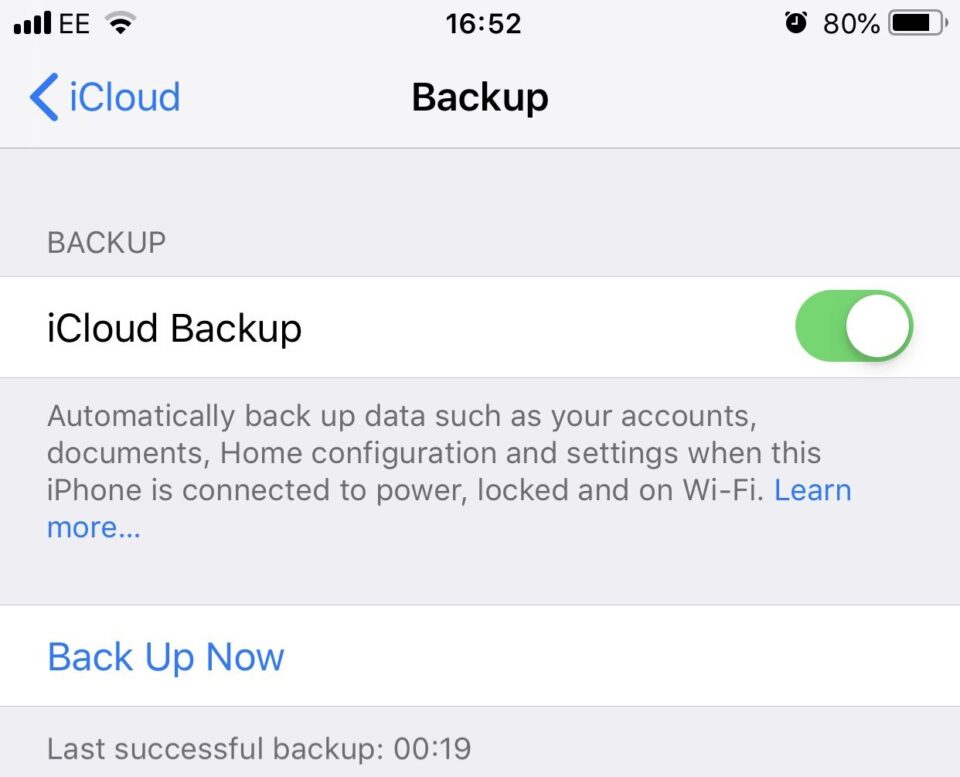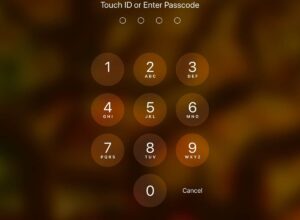The prospect of learning a new language for whatever reason is always one that induces excitement. I speak from having experienced similar feelings when I decided to start taking my first lessons in Spanish last year, that excitement might not be lasting as I later observed.
Learning a language is fun as we envision but more than fun it is a lot practical and challenging which could as well be an exercise in futility if the right amount of dedication and time is not committed.
Even while committing one’s self to becoming proficient in speaking another language if there is little understanding of how best one can learn or what steps would be most suitable, the outcome could be far less than expectations which could further dampen confidence going forward.
“Alright! Get your head up, it’s not the end of the world”; I really need that motivation to return to taking my Spanish lessons after months of hiatus. If you in a similar circumstance, you might find this article useful and I would be glad to see responses in the comments section especially of how useful you found this article.
There’s a lot of persons nowadays interested in becoming polyglots; individuals that have mastered multiple languages and each reason is unique to whoever is concerned. Not everyone learns a language so they could work as translator or to enhance their chances of getting employment at an organisation even if in the long run it could count.
If Narcos is your favorite series on Netflix you could be thinking of learning Spanish to become familiar with the conversations. The need to impress friends and family and maybe an internet friend who is a natural could also influence the decision to pursue proficiency in a particular lingo.
It is completely ideal that you quiz yourself first about what you intend to make out of learning your desired language. To rephrase it, what is it you are aiming for by giving your time to learning a language that is alien to you.
Most of the time, what this does is give you a drive to keep going even if the task seems very intimidating and challenging.
Now I will show you the bigger picture to help you see why it is beneficial to learn at least a second language.
Why Should You Learn A Foreign Language?
Many of the reasons listed here would pique your interest which does not surprise me considering the possible fact that when you decided to master a foreign language, you most likely envisioned your most personal intention without looking at the whole picture; it’s like thinking chewing was the only way to enjoy a banana until you fortunately got introduced to smoothies.
There are other benefits attached to becoming a diglot or polyglot especially due to the encompassing nature of languages.
Work
Some firms and organisations might require applicants to have knowledge of at least a foreign language before putting in applications.
Most international companies will list this as part of the conditions applicants should meet due to the high possibility of employees needing to interact with foreigners.
Also, having knowledge of a second language especially one that is universal could give an applicant an edge even when it is not listed as part of the requirements.
In Bilateral trade for instance, languages could serve as a barrier if both parties cannot communicate in a similar lingo.
A translator could come in at this point and make things easier for both parties by communicating the interests of both sides but it is even easier when both parties are proficient in a certain language say English and this even bolsters trust which is very important in relations like this.
Travel
You want to go on holiday to see the Eiffel Tower in Paris or the Leaning Tower of Pisa for the first time and visit the ‘cuisines’, coffee shops and malls; it is highly possible that as an English speaker you can get someone who also speaks English to take you on tour of the resorts and tourist attractions but visiting places like the local bar where the local lingo fills the air like cologne might unfortunately turn out to be uneventful if you cannot speak the language.
Your chances of becoming popular among the locals are higher if you could relate with them speaking their own language; locals love to see a foreigner speak their language even if not devoid of mistakes but to a certain level of comprehension.
Usually before going on holidays to places where the language spoken is different from yours it is advisable to be conversant with greetings, asking what the time is, ordering for a glass of beer or milk, asking for directions.
Although not necessary, events such as the World cup, Olympics that are hosted in different countries per edition could be enjoyed when one has an understanding of the language commonly spoken in such place if it is not already your first language.
Migration
Similar to the reason given in the last paragraph but this would be almost compulsory since you would be staying longer than an holiday should last. Even if you migrate to a country where your first language is commonly spoken, it is advisable to learn the local language to settle in quickly especially among the locals.
Religion
A lot of the holy books have been translated to several languages making it easier to get religion to other regions beyond where they originated; my mind readily casts back to the Late Ajayi Crowther, a Nigerian who translated the Holy bible to create its first Yoruba copy.
One reason why religious followers should learn the languages associated with their religion is the prospect of pilgrimage.
Pilgrimage to see the pillars of one’s beliefs are rare moments that every religious follower dreams of, a Muslim would tell you tell you the same about Mecca, so also a Christian about Jerusalem.
Apart from sightseeing, pilgrimage gives you the chance to mix with the locals and hear from them first hand the stories that have been passed from generation to generation about your religion and as much as they would love to pass the message across to you, language differences could cause a barrier.
Study
Education could take you places you could not imagine for study or educational research. Studying in an unfamiliar environment would be challenging considering the cultural differences and most foreign students struggle in countries where the language is totally different.
The ‘fish out of water’ experience is common to such students and socializing could be very difficult at least for as long as the language seems strange.
Also, carrying out a research on a subject unique to a particular region or country with a different language would be most comfortable having an understanding of the language.
Relationship
Here, I could picture a scenario or two of how learning languages could deepen relationships. Funny how it sounds, you could learn a language to impress someone of the opposite sex who speaks a different language even if you two already found a similar language to communicate in.
You can be certain of winning such person’s heart or picture yourself marrying into an Italian family as an English speaker, learning Italian would not make you feel left out when the family switches to Italian when having conversations during dinner or a get-together; surely a life saver.
Understanding your roots
Literature and art help us understand our cultural heritage. Folktales, myths and legends pertaining to a particular set of people have been created to help them understand their way of life and are still being handed down from generation to generation.
Learning to speak and understand your native language if you cannot will help you understand your roots better and inspire you to pass the legacy on to future generations through writing or story-telling. Learning your native language could also unearth some truths that were for a long time otherwise unknown.
Keep It Coded
Learning a language already known to some of your friends or family could help you communicate on a level unknown to others who do not understand the language. This way you could speak freely in public while still keeping secret the message or intent behind the conversation.
How To Learn A New Language
That’s just eight of the long list of reasons why you might just want to learn a language. Now, deciding would not be much of a problem, the major issue arises from going about it. How best can you learn a language? What are the most effective methods?
Those are the likely questions going through your head. News is there is no general method since each person learns from what method works best for them but a combination of all or some of these ways is a cool idea and an inevitable one at that. In no particular order;
Over and Over
Going through your language lessons every day for a couple of minutes would be more effective than doing a lengthier session once or twice a week. Repeating previous lessons will help to keep information fresh in the memory which can then be consolidated by enough practice.
Find a partner
Learning a language with someone else could create a fun and still competitive environment. Try and make it someone close that you have access to almost every day of the week, this week you both can learn together, set goals with time frames and push yourselves to attain them. You could also practice what you have learnt creating conversations and writing to each other.
Stay in touch with a native speaker
This is undoubtedly one of the most effective ways to learn a new language. Finding a native speaker to learn from and practice with actually makes you understand the language better and quicker.
Video chatting services like Skype where you can hold real life conversations will be an ultimate platform to get things going if such person does not stay close. You might also like the idea of writing to each other.
Get A Dictionary
Keep a dictionary in your desired language very close to check up words and phrases that you might have picked somewhere else and sound strange to you.
While a physical copy will make for very good use if you could get it, downloading a dictionary application on your device is much more better since you have it almost every where with you. A blend of both would be best if you can afford it.
Listen to or Watch Programmes
Listening to radio programmes will mainly bolster your skills of word pronunciation also helping you to be familiar with phrases and words and even slangs that are commonly used by native speakers.
Learning through TV programmes originally in the language or dubbed from your local language will be quite easier since you can relate the words to the scenario or actions that back them up.
Read Magazines, Journals
Reading articles on choice subjects covered in magazines or newspapers in the language you wish to learn will also make you familiar with common words used in the language.
The words that seem strange can be checked on your dictionary before putting them back in the sentences to understand the context.
Practice
We have all heard the old cliche “practice makes perfect”. It is almost true for any learning process that you have got to practice to retain anything that you learn.
Practice helps to ingrain information into your memory helping you recollect as you try to repeat such thing once again.
You might start by talking to yourself, staring at the mirror and creating two-person conversations with just you playing both roles then proceed to speaking to native speakers if you have any around or if you have them on your messaging applications and video calling services.
Use language learning services
Hiring a private language teacher or enrolling in a school that teaches languages are also very reasonable options considering the tutorship and attention you will get in return for your fee. Also, you can enroll on online language services or download applications created for this purpose for use.
Anki, Pimsleur, Babbel, Duolingo, Rosetta Stone are some of these online language services.






